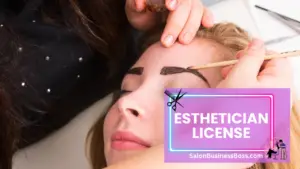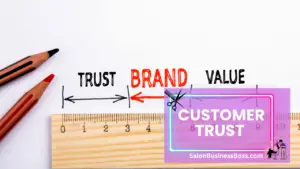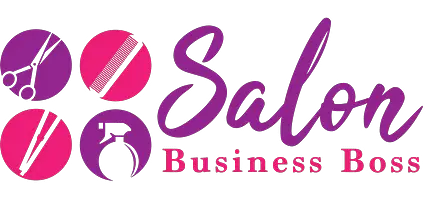Dreaming of turning your passion for beauty into a thriving business by opening a beauty salon? The allure of helping people feel confident and beautiful while running your own enterprise is undoubtedly exciting. However, before you dive into the world of haircuts, nail art, and skincare, there’s an essential aspect you must consider: licensing.
To open a beauty salon, you’ll likely need licenses. These ensure expertise, safety, and legality in providing beauty services. Research your local regulations for specifics
In this article, we’ll unravel the intricacies of whether you need a license to open a beauty salon and the steps involved in obtaining one.
The Legal Landscape

The realm of beauty encompasses more than just makeup and hairstyling—it operates within a framework of regulations that emphasize health, safety, and professionalism. This translates to a set of rules that aspiring beauty salon owners must adhere to. In numerous regions, obtaining distinct licenses is a prerequisite before you can open your salon doors. These licenses have a singular purpose: ensuring that the services you offer uphold particular standards and safeguard customers against potential health hazards.
In other words, owning a beauty salon involves more than just skill and creativity; it entails a commitment to meeting established norms. These norms are not just guidelines but rather enforceable requirements. They guarantee that your salon operations align with the broader objective of maintaining safety and quality within the beauty industry. So, before you embark on your salon journey, familiarize yourself with the necessary licenses—your ticket to running a salon that prioritizes both beauty and wellbeing.
Read more about: The Price Tag of Opening a Hair Salon: What to Expect
Licensing Requirements
Licensing requirements can vary significantly depending on your location, so it’s crucial to research the regulations in your area. Generally, you’ll likely need at least one of the following licenses:
Salon Owner License
The salon owner license grants you the authority to establish and manage your very own beauty salon. It’s not just a piece of paper; it signifies your capability to oversee the salon’s workings effectively. To obtain this license, you’ll need to showcase your understanding of how a salon operates. This includes demonstrating your grasp of crucial aspects like maintaining the salon, adhering to hygiene protocols, and ensuring the safety of your customers.
In essence, this license isn’t just a formality—it’s a validation of your proficiency in handling the responsibilities that come with being a salon owner. It’s your commitment to ensuring that the space you create is not only aesthetically pleasing but also safe and comfortable for everyone who walks through its doors. So, as you consider opening your beauty salon, keep in mind that the salon owner license is a testament to your dedication to offering an environment where beauty and well-being harmoniously coexist.
Cosmetology License
Suppose your ambitions involve offering services like hairstyling, makeup application, and nail care. In that case, a cosmetology license becomes a pivotal requirement. This license acts as evidence of your qualification to perform these tasks skillfully and safely. The path to acquiring a cosmetology license involves enrolling in a cosmetology program endorsed by your state. This program equips you with the essential knowledge and hands-on training needed in your chosen field.
Once your training is complete, an exam stands between you and your cosmetology license. Think of it as a measure to ensure you’re fully equipped to deliver top-notch services. By completing this process, you’re demonstrating your proficiency in the art of beautification. Your cosmetology license reflects your commitment to honing your craft and providing services that enhance your clients’ appearance while adhering to industry standards. Remember, this license isn’t just a formality; it’s a testament to your dedication to the beauty industry’s principles and the trust your clients can place in your skills.
Esthetician License
If your aspirations lead you to offer skincare services, facials, and waxing, then securing an esthetician license becomes an essential step. This license validates your expertise in performing these specific treatments safely and professionally. Much like obtaining a cosmetology license, acquiring an esthetician license involves a learning process.

You’ll typically need to enroll in an approved esthetician education program. This program imparts the necessary skills and knowledge related to skincare techniques, facial treatments, and hair removal through waxing. Once you’ve completed your education, the next milestone is passing an examination. This exam evaluates your understanding of esthetic procedures and ensures you’re well-prepared to provide these services to clients.
Think of the esthetician license as a testament to your commitment to enhancing the well-being and appearance of your clients through meticulous skin care practices. It signifies your dedication to staying abreast of industry standards and providing a safe environment for your clients. So, as you pursue your esthetician license, you’re taking a significant step towards contributing positively to the world of beauty and self-care.
Read more about: The Profitability Puzzle: Decoding Hair Salon Earnings
Nail Technician License
If your passion lies in the realm of nail art, manicures, and pedicures, then obtaining a nail technician license is vital. This license underscores your proficiency in delivering top-quality nail services while prioritizing safety and precision.
To acquire this license, your journey begins with specialized training. You’ll immerse yourself in learning various techniques for nail enhancements, treatments, and designs. This training equips you with the skills needed to provide clients with well-crafted and aesthetically pleasing nails. Once your training is complete, the next step is to prove your capabilities through a targeted examination.
This exam evaluates your understanding of nail care procedures, sanitation practices, and your ability to create stunning nail art. Think of the nail technician license as a badge that showcases your dedication to mastering the art of nail aesthetics. It signifies your commitment to offering clients a delightful and safe nail care experience. By becoming a licensed nail technician, you’re stepping into a role where your creativity and skills contribute positively to enhancing your clients’ self-confidence and appearance.
Business License
Apart from the licenses specific to beauty services, there’s another crucial one to consider: the business license. This license is essential for the lawful operation of any business, including your beauty salon. It signifies your adherence to local regulations and taxation rules that govern businesses in your area.
Obtaining a business license is a way of declaring that your salon is a legitimate establishment, recognized by the authorities. This license doesn’t focus on the intricacies of your beauty services but rather on your salon’s overall operations. It demonstrates your commitment to operating transparently, contributing to the local economy, and abiding by the rules that guide businesses.
Think of the business license as the backbone of your beauty salon’s legality. It provides you with the legal framework needed to run your salon without any hiccups. By securing this license, you’re not just offering beauty services; you’re also contributing to your community’s growth and prosperity in a responsible and legitimate manner.
Steps to Obtain a License
Research
Your journey towards opening a beauty salon starts with research. It’s crucial to begin by delving into the specific licensing requirements in your city, state, or country. Regulations in the world of beauty salons can be diverse and unique to different locations, so it’s of utmost importance to gather accurate information about what’s expected.
Imagine research as the foundation of your salon venture. Just like you’d carefully plan the layout of your salon space, researching licensing requirements is planning for the legal side of things. This step sets the tone for everything else that follows. It’s your way of ensuring that you’re aware of the rules and regulations governing beauty services in your area, and you’re taking the necessary steps to comply with them.
By dedicating time to research, you’re setting yourself up for a smoother journey. You’re equipped with the knowledge required to navigate the world of licenses effectively, avoiding potential hurdles and ensuring that your beauty salon operates within the boundaries of the law.
Education

Depending on the services you envision providing in your beauty salon, education plays a pivotal role. It’s important to recognize that different beauty services require specific knowledge and skills. For instance, if you’re looking to offer hairstyling, makeup application, and nail care, attending a cosmetology school could be beneficial.
Alternatively, if your focus is on skincare treatments and facials, an esthetics program would be more relevant. And if you’re passionate about nail art and manicures, a nail technician course would provide the necessary foundation. These educational programs aren’t just about theory; they’re designed to equip you with hands-on skills and insights that are directly applicable to your chosen field.
Think of education as the toolkit that prepares you for the practicalities of running a beauty salon. Just as a painter needs brushes and paints, you require the right knowledge to deliver quality beauty services. By investing in education, you’re ensuring that you’re well-prepared to meet the needs and expectations of your clients while adhering to the standards required for licensing in your chosen area of expertise.
Read more about: The Road to Salon Ownership: Analyzing Start-Up Costs
Training Hours
As you journey toward obtaining your beauty salon license, training hours become a crucial component. Many licensing programs mandate a certain number of training hours to ensure that you’re well-versed in your chosen domain. These hours aren’t just about counting minutes; they’re about immersing yourself in hands-on experiences that build your capabilities.
Think of training hours as practice sessions that help you refine your skills. Just like a musician practices their instrument to become better, you’ll engage in activities that enhance your proficiency in providing beauty services. These hours are an investment in your growth and confidence.
Consider training hours as the bridge between knowledge and application. While education equips you with theory, training hours transform that knowledge into real-world actions. They allow you to work with actual clients, refine your techniques, and understand the nuances of your craft. Ultimately, it’s this practical experience that sets you on the path to becoming a proficient beauty professional, capable of delivering quality services that meet the standards necessary for licensing.
Examinations
As you navigate the licensing journey for your beauty salon, examinations become a pivotal stage. These tests are designed to assess your understanding of the industry and your capability to provide services safely and professionally. Examinations typically come in two forms: written and practical.
The written aspect evaluates your grasp of the theoretical side of the beauty business. It’s like a quiz that gauges your knowledge of different procedures, industry standards, and customer safety protocols. On the other hand, the practical examination is where you showcase your skills in action. Just like a chef putting together a dish, you’ll perform beauty services, demonstrating your ability to follow proper techniques, maintain hygiene, and ensure client comfort.
Think of examinations as checkpoints that validate your readiness to be a licensed beauty professional. They’re like road tests for your skills and knowledge. By completing these exams, you’re demonstrating your aptitude for delivering services that meet the quality and safety standards expected within the beauty industry. These assessments contribute to your overall journey of becoming a reputable and capable beauty salon owner.
Application
After completing your education and passing your exams, the next step in the journey to obtaining your beauty salon license is the application process. This is the moment when you formally apply to the relevant authorities to be granted your license. It’s like submitting an application to join a club or enroll in a program.
The application process involves a few key elements. You’ll need to provide documentation that proves you’ve met all the necessary requirements, including your educational qualifications and examination results. There also might be fees associated with the application. These fees are like the cost of admission to the beauty salon world.
Depending on your location and the type of license, you might also undergo a background check. This is like a security check to ensure that you have a clean record and are fit to provide services to clients.
Think of the application process as the final checkpoint before you’re granted the green light to officially run your beauty salon. It’s the culmination of your efforts, education, and training, coming together to showcase your readiness to operate within the industry’s guidelines and provide top-notch services to your clients.
Renewal and Continuing Education

Once you’ve acquired your beauty salon license, it’s important to remember that it’s not a one-time deal. Many licenses require periodic renewal. This means that after a certain period, you’ll need to go through a process to extend your license’s validity. It’s similar to renewing a subscription or a membership.
Renewal ensures that you’re still up-to-date with the industry’s standards and practices. But it doesn’t stop there. In the world of beauty, trends and safety protocols are always evolving. That’s where continuing education comes in. Just as doctors attend workshops to learn about the latest medical advancements, beauty professionals often need to participate in courses that keep them informed about new techniques and safety measures.
Think of renewal and continuing education as the ongoing maintenance of your beauty salon journey. It’s not just about getting the license once; it’s about staying current and competent. By renewing your license and investing in learning, you’re displaying your commitment to excellence. You’re ensuring that your skills remain sharp and your salon remains a trustworthy destination for clients seeking top-notch beauty services.
Read more about: The Variability of Profit Margins in Hair Salons
Benefits of Licensing
While the process of obtaining a license might seem daunting, there are several benefits that make it well worth the effort:
Credibility
Imagine your beauty salon as a book, and your license as the cover that tells clients what’s inside. Having a license provides your salon with credibility – it’s like a stamp of approval from the authorities. When clients see that you’re licensed, it reassures them that you’re not just someone who picked up a brush or a pair of scissors one day; you’ve undergone proper training and have the know-how to provide quality services.
Think of credibility as the trust currency. Just as you trust a certified mechanic to fix your car, clients trust a licensed beauty professional to take care of their appearance. Your license is like a promise to your clients that you’re committed to following the right procedures and maintaining high standards. It sets you apart from unlicensed individuals and gives you an edge in the competitive world of beauty services.
By showcasing your license, you’re telling clients, “Hey, I know what I’m doing, and I’ve got the official endorsement to prove it.” It’s not just a piece of paper; it’s a badge that reflects your dedication to professionalism and customer satisfaction.
Health and Safety
Picture your beauty salon as a safe haven where clients come to enhance their appearance and well-being. Licensing plays a crucial role in maintaining this safe environment. It’s like a set of rules that you agree to follow to keep your clients and staff out of harm’s way.
Licensing ensures that you’re not just creating a pretty space; you’re creating a safe space. Just as a lifeguard ensures swimmers are safe in a pool, a licensed beauty professional ensures clients are safe during treatments. By adhering to health and safety standards, you’re significantly reducing the chances of accidents, infections, or any other unwanted surprises.
Think of licensing as the safety net that catches any potential risks. It’s like wearing a helmet while riding a bike – it provides that extra layer of protection. By following these guidelines, you’re demonstrating your commitment to your clients’ well-being. You’re saying, “I care about your safety as much as I care about making you look great.” It’s not just about beauty; it’s about ensuring a worry-free and comfortable experience for everyone who steps into your salon.
Legal Compliance
Think of licenses as the rules of the beauty game – they’re the guidelines that keep you in the legal zone. Operating a beauty salon without the proper licenses is like playing a sport without knowing the rules; it can get you into trouble.
Licensing is more than just paperwork; it’s a shield against penalties and problems. Just as driving without a valid license can lead to fines or even losing your driving privileges, running a salon without licenses can result in hefty fines or, in extreme cases, shutting down your business altogether.
By having the right licenses, you’re ensuring that you’re on the right side of the law. It’s like following the road signs – they guide you safely to your destination. Licenses are your way of saying, “I respect the rules, and I’m committed to operating my salon within the legal boundaries.” It’s not about red tape; it’s about securing your business and your reputation while building trust with your clients and authorities alike.
Customer Trust

Imagine your beauty salon as a place of trust, where clients know they’re in good hands. Licenses play a significant role in building this trust. It’s like a foundation that assures clients they’re stepping into a reputable and reliable establishment.
When clients see that you’re licensed, it’s a signal that you care about their well-being. Just as you trust a lifeguard to keep you safe at the beach, clients trust a licensed beauty professional to prioritize their safety and satisfaction. Your license is more than a piece of paper; it’s a promise that you’re committed to providing quality services while following the rules.
Think of customer trust as a bridge that connects your salon to loyal clients. Just as you’re more likely to return to a favorite restaurant that consistently delivers great food and service, clients are more likely to return to a licensed salon that puts their well-being first. By having the right licenses, you’re telling clients, “I value your trust, and I’m dedicated to ensuring your experience is top-notch.” It’s not just about beauty treatments; it’s about fostering a relationship of trust and loyalty.
Read more about: The Dynamics of Profit Margin Variability in Hair Salons
Conclusion
Opening a beauty salon is an exciting endeavor, but navigating the world of licenses and regulations is a crucial step to achievement. The beauty industry emphasizes professionalism, safety, and customer satisfaction, and licenses are a reflection of your commitment to these values. Before you start ordering salon furniture and picking out paint colors, invest the time and effort required to obtain the necessary licenses. Doing so will not only set your business up for legal achievement but will also create a foundation of trust and excellence with your clients. So, do you need a license to open a beauty salon? The answer is most likely a resounding “yes,” and the journey to obtaining one is a pivotal part of your salon’s story.
Frequently Asked Questions

Q: Is a license necessary to operate a beauty salon?
A: Yes, obtaining a license is usually a requirement for opening and running a beauty salon. Licenses ensure adherence to industry standards and regulations.
Q: What types of licenses might I need for a beauty salon?
A: The licenses you need can vary based on the services you offer. Common licenses include salon owner, cosmetology, esthetician, and nail technician licenses.
Q: How do I obtain the necessary licenses for my beauty salon?
A: To obtain licenses, you typically need to complete the required education and training, pass exams, and submit applications with relevant documentation. Specific steps vary by location.
To learn more on how to start you own salon checkout my startup documents here.
The information provided by SalonBusinessBoss.com (“The Site”) is for general informational purposes only. All information on the Site is provided in good faith, however, we make no representation or warranty of any kind, express or implied, regarding the accuracy, adequacy, validity, reliability, availability or completeness of any information on the Site. Under no circumstance shall we have any liability to you for any loss or damage of any kind incurred as a result of the use of the Site or Reliance on any information provided on the Site. Your use of the Site and your reliance on any information on the Site is solely at your own risk. This blog post is for educational purposes only and does not constitute legal advice. Please consult a legal expert to address your specific needs. Terms and Conditions. (https://salonbusinessboss.com/terms-conditions/)

About the author. Entrepreneur and Salon Business Fan.
Hi! I am Shawn and I am a happy individual who happens to be an entrepreneur. I have owned several types of businesses in my life from a coffee shop to an import and export business to an online review business plus a few more and now I create online salon business resources for those interested in starting new ventures. It’s demanding work but I love it. I do it for those passionate about their business and their goals. That’s why when I meet a salon business owner, I see myself. I know how hard the struggle is to retain clients, find good employees and keep the business growing all while trying to stay competitive.
That’s why I created Salon Business Boss: I want to help salon business owners like you build a thriving business that brings you endless joy and supports your ideal lifestyle.


